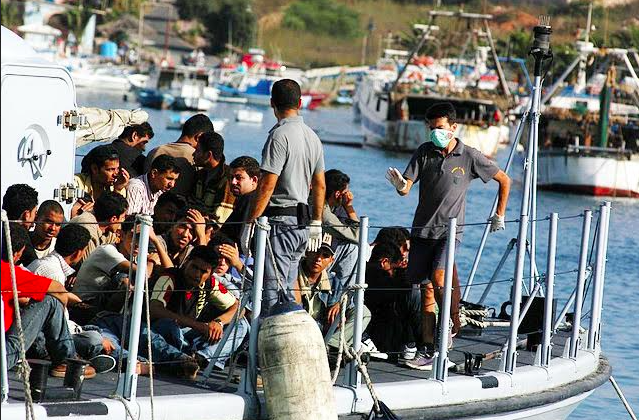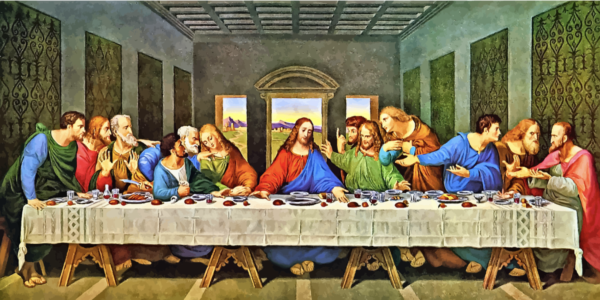Overcrowded boat of migrants
The number of migrants attempting to enter the European Union (EU) has risen considerably this year, putting a strain on European authorities. The consequences of this increase were seen in both the Mediterranean and Macedonia, where recent developments highlight the scale of the situation. In mid-August. An operation led by the Italian coast guard saw 4400 migrants rescued from more than 20 boats in the Mediterranean sea. In a separate issue in Macedonia, thousands of migrants are freely traversing the border after the government reopened it.
Macedonia, a small Balkan nation north of Greece, is a stop for many migrants on their perilous journeys to the wealthier nations of northern Europe. On August 20th, the government of Macedonia declared an emergency and sealed its border to curb the flow of migrants into the country. After clashes between border police and migrants, the border was reopened, and the thousands of migrants amassed there were allowed into the country. Many of them then continued north to attempt to enter Hungary, a member of the European Union, through Serbia.
Similarly, on August 23 in the Mediterranean, 4400 migrants were rescued in a single day, mostly by Italian naval vessels in addition to ships from other countries, deployed as part of Operation Triton. This operation, led by Italy, is Europe’s primary border-security operation in the Mediterranean. It is managed by the European Union’s border security agency, Frontex.
These events have occurred as part of a growing crisis in which more than 340,000 migrants have reached Europe’s borders so far this year, including 264,500 who have braved the perilous journey across the Mediterranean. Two thousand of them, unfortunately, did not survive.
These migrants are compelled to risk their lives in search of a better future.
— Jack Conway
Many journey through Africa for months, often arriving in war-torn Libya. The lack of government there allows human smugglers, those who transport the migrants from Africa to Europe, to work without interference. The largest number of migrants are from Syria, Afghanistan, and Eritrea. They leave their home countries, which are fraught with civil war, poverty or political repression, to seek safety and economic opportunity.
The influx of migrants has created an atmosphere of tension in Europe, with many nations looking unfavorably on the acceptance of migrants into their societies. A growing number of Europeans oppose immigration, causing a surge in the popularity of radical far-right political parties such as the Front National (FN) in France and UK Independence Party (UKIP) in the United Kingdom. There is also significant pressure on European politicians to act on the issue. Recently, the Hungarian government announced plans to fence its entire border with Serbia, and the government of Slovakia declared that it would only accept Christian refugees.
With international political and economic crises showing no signs of easing anytime soon, mass immigration to Europe likewise will not abate in the near future. European nations, then, will continue to face pressure by hundreds of thousands of migrants to resolve this growing humanitarian crisis as effectively as possible.
Source: bbc.com














